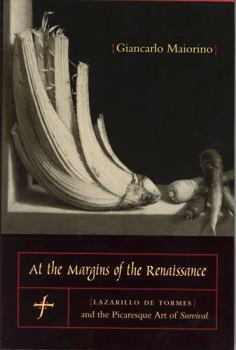At the Margins of the Renaissance: Lazarillo de Tormes and the Picaresque Art of Survival
(Part of the Studies in Romance Literatures Series)
Select Format
Select Condition 
Book Overview
Published anonymously in 1554, Lazarillo de Tormes upset all the strict hierarchies that governed art and society during the Renaissance. It traces the adventures not of a nobleman or ancient hero, but rather of an ordinary man who struggles for survival in a cruel, corrupt society after growing up under the care of a blind beggar. Giancarlo Maiorino treats this picaresque narrative as a prism for exploring econopoetics, a term he uses to...
Format:Paperback
Language:English
ISBN:0271058463
ISBN13:9780271058467
Release Date:September 2012
Publisher:Penn State University Press
Length:200 Pages
Weight:0.65 lbs.
Dimensions:0.5" x 6.0" x 9.0"
Customer Reviews
0 rating





